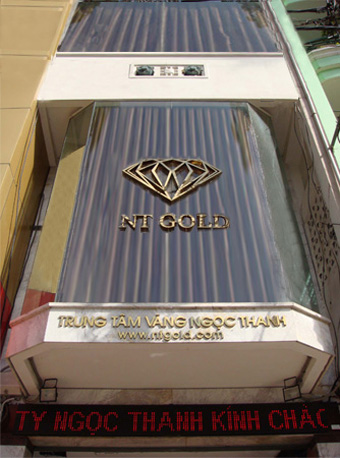Poly Culture Group Corp., which runs China’s largest auction house and manages 31 theaters, is seeking to raise as much as HK$2.57 billion ($331 million) when it sets the IPO price today. The company’s “extensive local business network” will enable it to enjoy economies of scale, Poly Culture said in an IPO prospectus.
China eclipsed the U.S. to become the world’s largest art market in 2011, according to a report by the European Art Fair, only to lose its position back to the U.S. the following year as auction houses grappled with non-payment by clients, art forgeries and money laundering. Poly Culture’s Beijing auction arm, which began holding sales in 2005, plans overseas expansion to compete with Christie’s and Sotheby’s, in business for centuries.
“There seems to be good demand from public investors leading to a large retail tranche, however a number of buyers at auction in China end up not honoring their commitments and this could be a case of a good initial performance and the shares then not doing well in the longer run,” said Philippe Espinasse, former co-head of equity capital markets for Asia at Nomura Holdings Inc. and author of “IPO: a Global Guide.”
Military Ties
Poly Culture’s net income fell to 386.3 million yuan ($63 million) in 2012 from 583.1 million yuan a year earlier and was 308.2 million yuan in the first 10 months of 2013, according to the prospectus. Shares are set to begin trading on March 6.
China Poly Group was set up in 1992 with the approval of the State Council and the Central Military Commission. The company is involved in arms trading, real estate, the arts and minerals, and had total assets of 382.9 billion yuan at the end of 2012, according to its website. The group started its arts and entertainment subsidiary in 2000, according to the prospectus.
Poly Culture’s military connections do not come without risks, the company said in the prospectus. In February 2013, the U.S. announced sanctions on a Poly defense unit, Poly Technologies Inc., under the Iran, North Korea and Syria Nonproliferation Act. Poly Technologies owned 32 percent of Poly Culture at the time, according to the prospectus.
’Negative Media’
While the stake was transfered to the parent four months later, Poly Culture said in the prospectus that it “may be subject to negative media or investor attention.” After the IPO, Poly Group is projected to maintain a 67 percent stake in the listed company, according to the prospectus.
An operator at the Poly Group and Poly Technologies refused to connect a call through to the Poly Group board secretary and the company did not immediately responded to a fax seeking comment on the U.S. sanctions.
Poly Group also cited the risks associated with non-payment by the company’s mainland auction clients. The percentage of recorded sales paid for in 2010 was 74 percent, falling to 55.5 percent in 2012 and 52.9 percent in the first 10 months of last year, according to the prospectus.
By comparison, Sotheby’s said in its 10-K filing with the U.S. Securities and Exchange Commission that “historically, canceled sales have not been material in relations to aggregate hammer price of property sold at auction by Sotheby’s.”
Paying Customers
Christie’s, which derives 72 percent of its Hong Kong auction sales from mainland clients, has a non-payment rate of about five percent, Simone Woo, acting head of Asia corporate communications said.
One of the reasons Poly Culture started holding auctions in Hong Kong in 2012 is that clients there pay on time, said Wang Wenjia, fine modern Chinese paintings and calligraphy specialist at the auction house.
“People who come to Hong Kong are more civilized buyers and they respect the rules,” said Wang. “So we don’t have a lot of clients who don’t pay.”
Listing is also seen as a way of promoting the Poly brand overseas as Christie’s and Sotheby’s are starting to compete with them on their home turf.
“It will be 100 years before this company is going to be on a footing with Sotheby’s and Christie’s,” said James Hennessy, an art dealer in Hong Kong who formerly worked at Christie’s. “I would say to investors, it’s way too early days, stick with the proven players.”
Last September, Christie’s held its first mainland auction in Shanghai, while Sotheby’s and its state-owned joint-venture partner Beijing Gehua Cultural Development Group made its first foray in Beijing in December.
Money Laundering
The company prospectus also highlights risks related to art forgery, unauthorized trading, money laundering and bribery.
“We cannot assure you that our internal control system in relation to anti-money laundering and anti-corruption will be effective,” according to the prospectus.
Another risk stems from Poly Culture’s practice of advancing sellers as much as 30 percent of an auction item’s estimated value, according to the prospectus. If a work goes unsold, or is not paid for by the buyer, the company may not be able to recover the money, the company said.
Because it is difficult to insure art in China, the company does not purchase coverage for artworks put up and stored for auction, potentially exposing it to losses, the prospectus said.
To contact the reporter on this story: Frederik Balfour in Hong Kong at fbalfour@bloomberg.net
To contact the editor responsible for this story: Andreea Papuc at apapuc1@bloomberg.net
http://www.bloomberg.com/news/2014-02-27/military-linked-chinese-auction-house-to-ipo-in-hong-kong.html
| TIME | |||||
|---|---|---|---|---|---|
| Sydney | Tokyo | Ha Noi | HongKong | LonDon | NewYork |
| Prices By NTGOLD | ||
|---|---|---|
| We Sell | We Buy | |
| 37.5g ABC Luong Bar | ||
| 9,572.80 | 8,562.80 | |
| 1oz ABC Bullion Cast Bar | ||
| 7,988.00 | 7,098.00 | |
| 100g ABC Bullion Bar | ||
| 25,430.50 | 22,565.50 | |
| 1kg ABC Bullion Silver | ||
| 5,052.00 | 3,502.00 | |
Powered by: Ngoc Thanh NTGold
- Online: 89
- Today: 1902
- Total: 7135945














